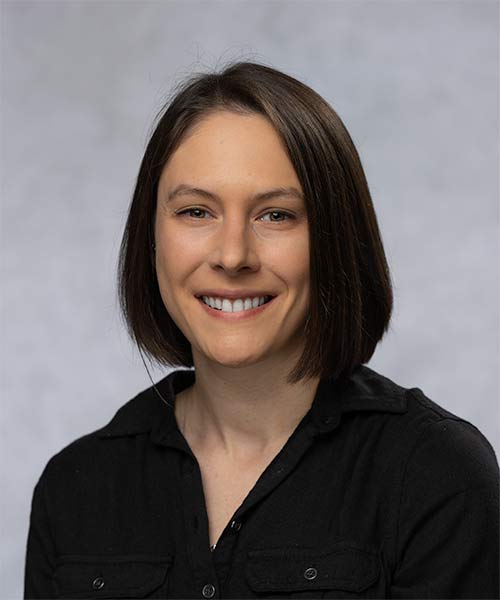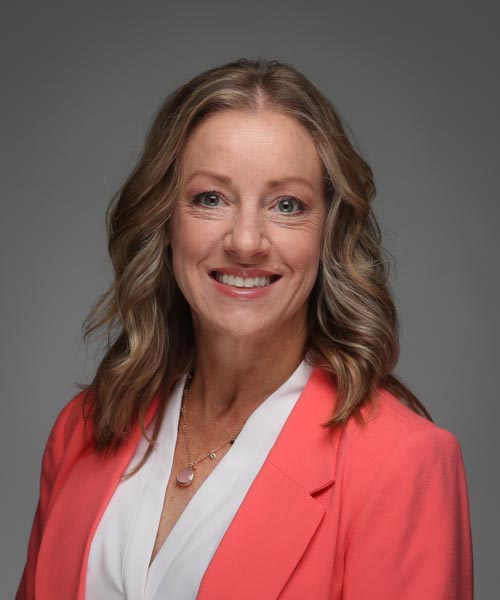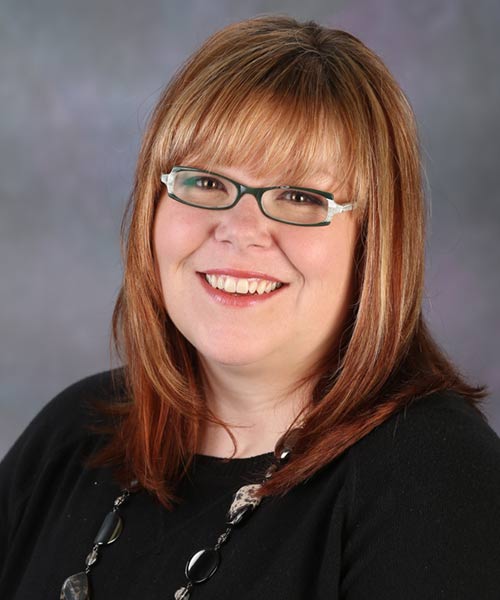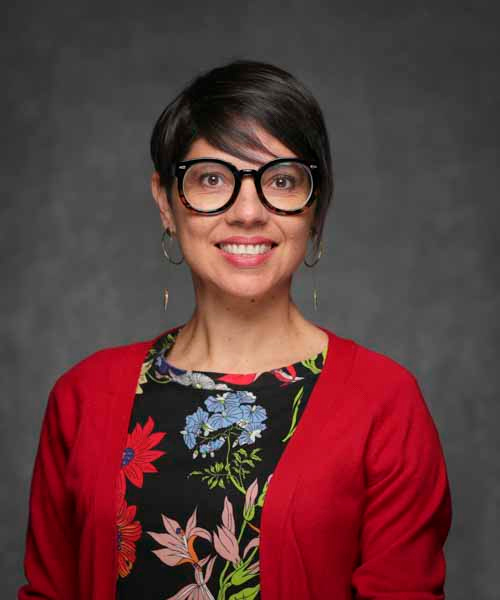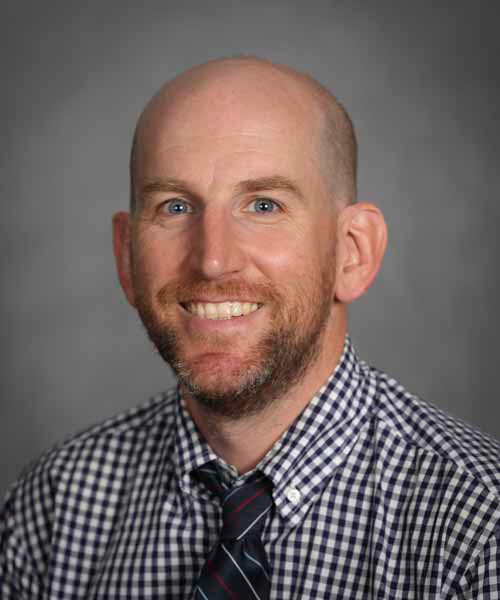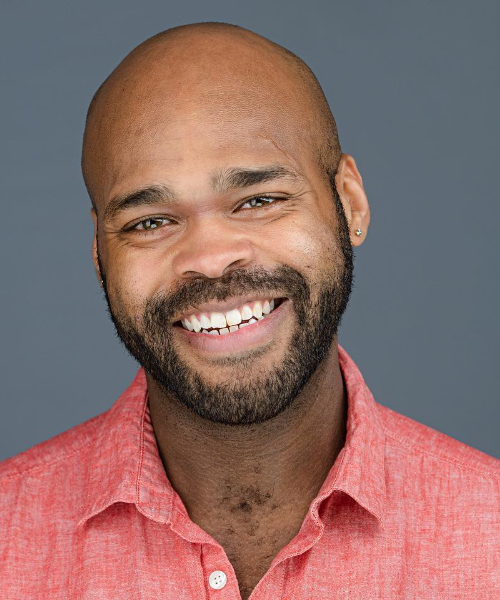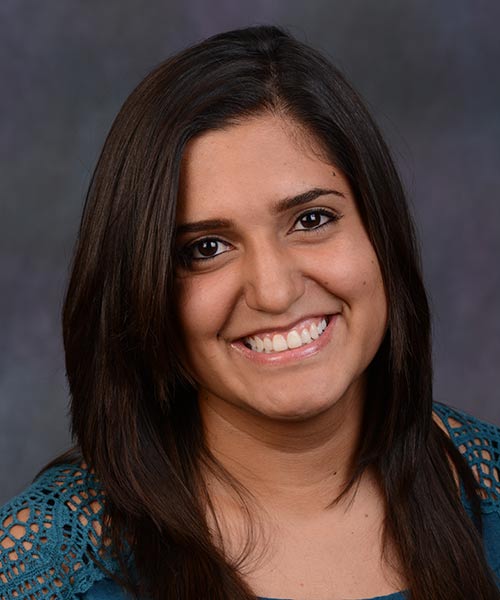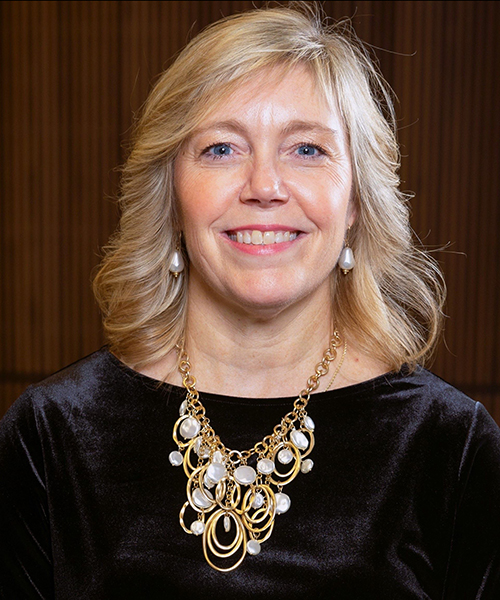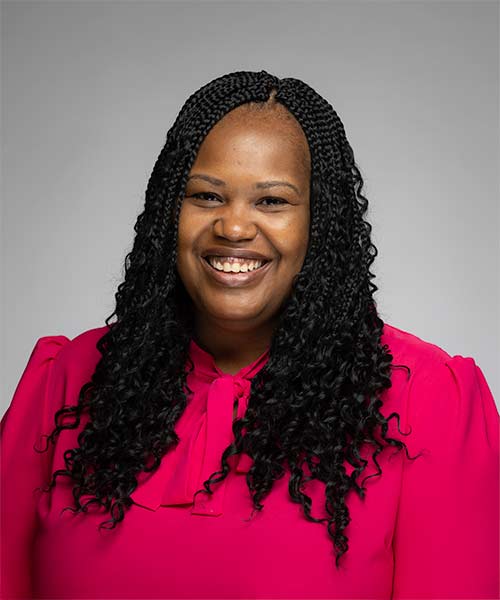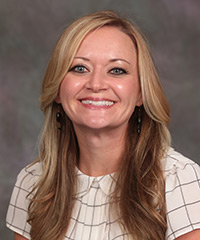Join a Faculty Learning Community (FLC)
Register through My Learning Connection.
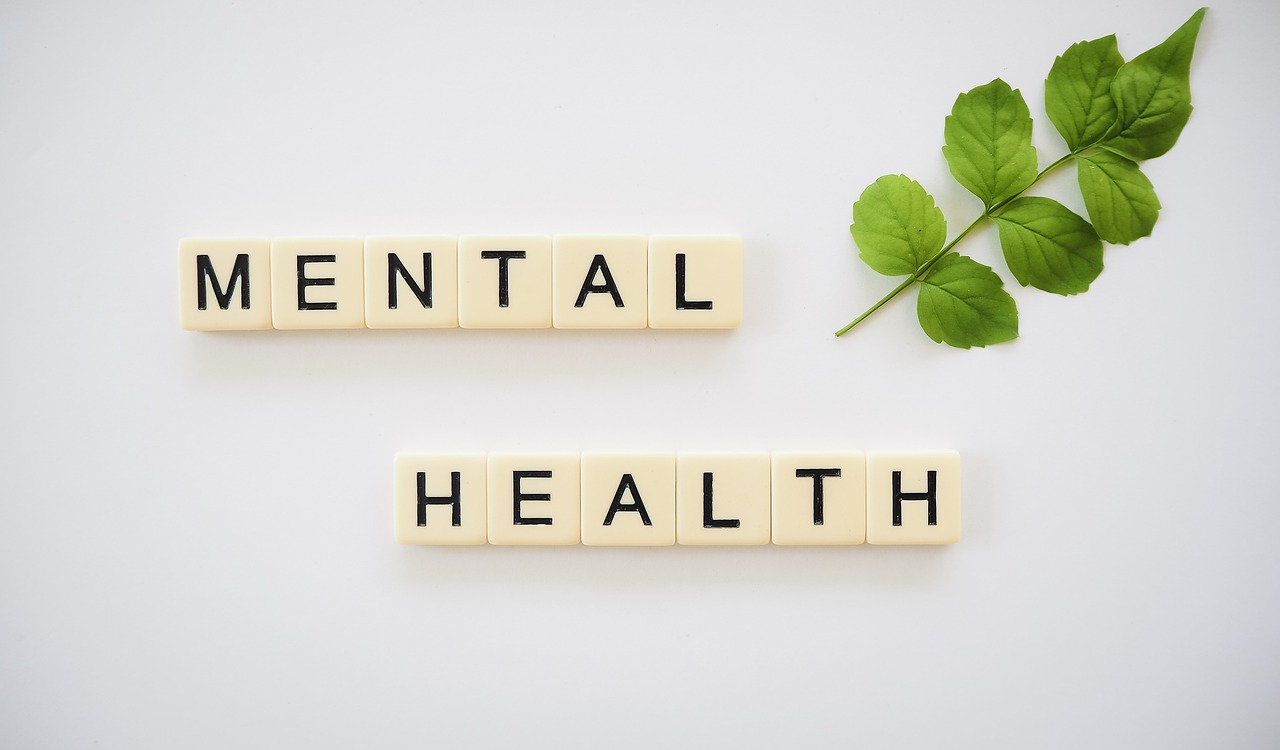
Image Credit: Pixabay
-
Student mental health is an increasing concern. According to the Healthy Minds Survey, 44 percent of college students report experiencing depression, 37 % report anxiety, and 15% say they have considered suicide in the last year. These difficulties with mental health show up in the classroom either in disruptive student behaviors or in a student’s reduced ability to follow course materials and learn what the class has to teach.
FLC Goals
Participants will...- Identify a set of best practices both in general and specific to each discipline attending to promote student mental health and well-being
- Pick out at least one of these practices to implement in at least one of their classes either immediately or in the next semester and design how to implement it
- Consider how they might bring these best practices back to their home departments
The goal is for faculty to come away with 5-7 best practices, including at least one that they can implement either right away or in the upcoming semester.
Session Schedule
This community meets from 10 a.m. to Noon.
Date Topic February 7, 2025 Best Practices around learning and preparing to act and the syllabus February 21, 2025 Connecting with Students, building an empowering atmosphere in the classroom and signaling your support March 7, 2025 Best Practices around Course Design and Reducing Test Anxiety March 28, 2025 Best Practices around Promoting effective academic skills and support outside the classroom April 11, 2025 Picking your practice(s) and spreading the word Facilitator(s)
FCTL Teaching & Learning Fellow

Image Credit: ChatGPT
-
As society evolves and changes, our teaching methods must also evolve. In general, university students are less engaged with the typical PowerPoint lecture mode of teaching and are yearning for more connection and interaction with the material. Experiential learning is a growing method of teaching that creates more student engagement, interest, and connection to the learning process.
FLC Goals
Participants will...
- Share information about experiential teaching
- Brainstorm ways each participant can use experiential teaching
- Share the successes and challenges of using experiential teaching
Session Schedule
This community meets from 12:30 to 2:30 p.m.
- February 5
- February 19
- March 5
- April 2
- April 23
Facilitator(s)
FCTL Teaching & Learning Fellow
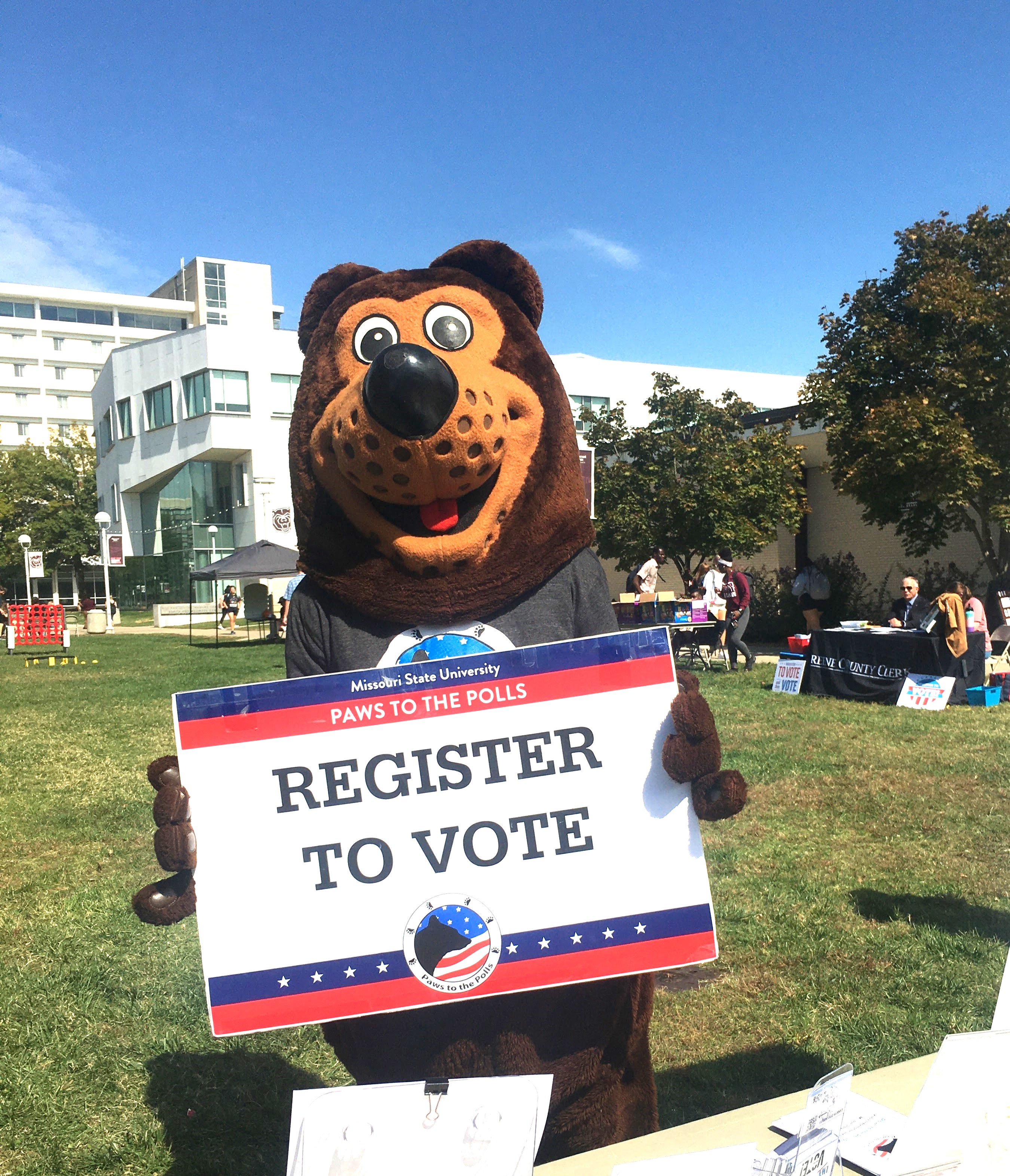
-
The sessions will first investigate the reasons behind – and the societal harm inflicted by – the lack of knowledge of applied civic engagement on college campuses. From there, participants will gather as a team to raise awareness of this challenging issue on campus, working collaboratively to explore solutions that fit with MSU and its mission. Participants will help to advance a foundational curriculum of civic engagement, strategize solutions, and contribute ideas to bolster grassroots efforts of building an interdisciplinary institute of civic engagement. Appearances by current and former students will showcase the impact of civic engagement and demonstrate how their involvement has influenced their college experience and their subsequent professional trajectories.
FLC Goals
- Raise awareness about the educational gaps regarding applied civic engagement as well as the logistical and perceived barriers to engagement in the democratic process and to explore how these result in widespread disengagement and apparent apathy among students.
- Explore ideas that build upon the existing foundation of voter education at Missouri State University established by the broad scope of the Paws to the Polls initiative as well as advocating for the establishment of a newly introduced course on foundational public affairs and civic engagement as a graduation requirement.
- Develop an action plan for building a civic engagement institute that will involve ideas and actions from all disciplines across campus. At least one certificate program will be planned related to civic engagement, and additional ones may be proposed. This allows participants to reflect on how their existing classes may fit with the idea of civic engagement or policy enactment. This effort will result in positive effects for not only the campus community at all levels but also the community at large due to forming a greater sense of interconnectedness between campus and community.
This FLC will encourage participant action beyond the FLC meetings in the form of taking ideas back to their departments and students to raise awareness of issues more broadly on campus and requesting feedback and responses from colleagues and students (in the form of focus groups, surveys, or discussions).
Schedule
This community meets from 1:30 to 3:30 p.m.
Date Topic February 7 The bigger picture: Brainstorming and envisioning a civic engagement institute February 28 Putting the pieces together: Ideas and Actions March 28 Civic Engagement Institute: Developing an Action Plan April 11 Thinking about Sharing work with others (publication, presentation) April 25 Summing it up: Reflection and Discussion Facilitator(s)

This Faculty Learning Community will help you sort through your options as an instructor and help you make decisions what your AI course policies should be for students.
-
FLC Goals
- Participants will develop a greater understanding about how AI may affect the aims of college writing
- Participants will gain a firmer grasp of AI technologies available to enhance writing
- Participants will review their own writing assigments and policies in light of AI use
Schedule
This community meets from 1:30 - 3:30 p.m.
Date Topic February 12 Aims of College writing: What are we trying to accomplish February 26 Book discussion of AI and Writing March 12 Writing Assignment reviews March 26 AI policy reviews April 16 Putting it all together Facilitator(s)
Dr. Cynthia C. Johnson
Assistant Professor
Director of Composition
Register through MyLearningConnection

Image Credit: Pixabay
-
This FCL is for anyone interested in infusing their scholarly, pedagogical, or research pursuits with critical arts methodologies and praxis. Yes! You will learn to facilitate engaging, radically inclusive classrooms and forge new, innovative pathways through collaborative research and/or teaching. No! You don't have to be artist to participate.
FLC Goals
Participants will...
- Receive a robust introduction to the research, methods, and successful models of arts-integrated teaching and research.
- Learn about the responsiveness, effectiveness, and liberatory potentialities of art in a rapidly-changing world.
- Form a community of academics who are excited about actioning towards a creative campus.
- Dream-up and workshop arts-infused courses, projects, modules, etc. and connect with potential cross-disciplinary collaborators.
Schedule
This community will meet from 10 a.m. to Noon.
- March 28
- April 4
- April 11
- April 25
- May 2
Facilitator

Breakfast or Lunch Provided!
The Sustainability Fellows Program at Missouri State University is a learning community
for faculty, staff, and students dedicated to advancing sustainability efforts at
MSU. One goal of the program is to foster a shared understanding of sustainability
and to recognize how the pillars of sustainability can be integrated into discipline-specific
learning across disciplines.
Apply Now
Image Credit: Paige Tieken
-
The MSU Sustainability Fellows Program recognizes the work of the Brundtland Commission which identified three “co-equal” pillars of sustainability: a) environment, (b) economy, and c) equity (Portney, Sustainability, p. 6). “The argument is that sustainability can be achieved only by simultaneously protecting the environment, preserving economic growth and development, and promoting equity” (Portney, p. 6).
At Missouri State University, the sustainability fellows adapt this slightly to:
- Environment
- Economy
- Society
- Culture
The Sustainability Fellows Program advances this framework in concert with the Sustainable Development Goals (SDGs) created by the United Nations.
FLC Goals
The Sustainability Fellows Program has 8 Program Outcomes which drive The Faculty Fellows Program and the supplemental activities.
-
Shared Understanding: The program activates and sustains conversations about sustainability, including meaningful ways to integrate sustainability (intentionally) into courses, curriculum design, and campus activities.
- Student Learning: The program promotes the integration of sustainability into courses across campus.
- Teaching & Learning: The program fosters conversations about teaching and learning, including assessment, to advance pedagogical practices that incorporate sustainability into course and curriculum design.
- Recognition: The program recognizes and makes visible faculty who are committed to sustainability.
- Community Building: The program fosters connections across MSU (and the community) to allow ongoing community building for those interested in sustainability.
- Promotion & Tenure: The program allows faculty an opportunity to make their commitment to sustainability visible.
- AASHE Designation: The program supports MSU's goal of advancing its AASHE designation through curricular advancements.
The Sustainability Fellows Program is sponsored by the Faculty Center for Teaching and Learning (FCTL), the College of Education, and the SGA Sustainability Commission. Additional professional development support is provided by participant’s unit, if allowed.
Session Schedule
- January 17, 2025
- January 31, 2025
- February 14, 2025
- April 11, 2025
Facilitator(s)
Dr. David R. Perkins
Associate Professor
Sustainability Programs Director
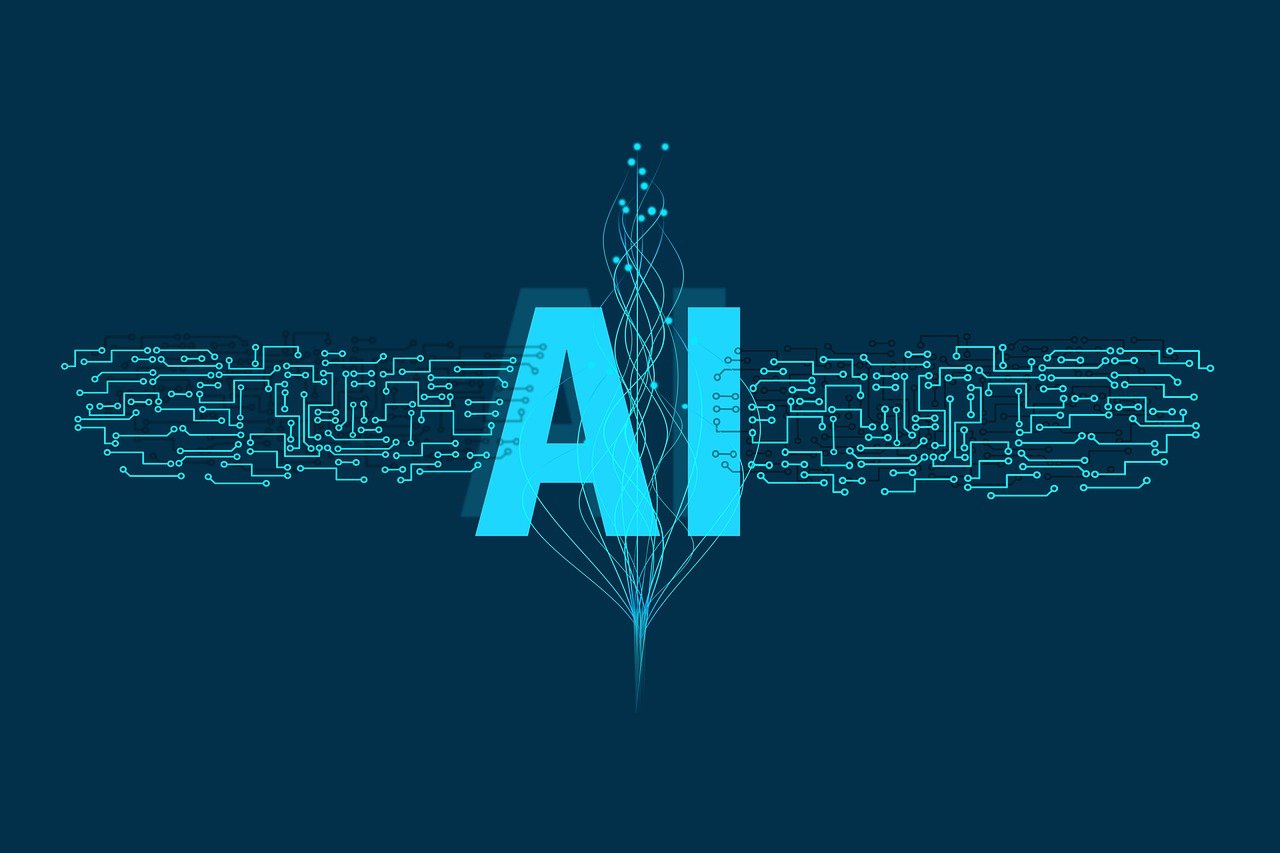
Image Credit: Pixabay
-
TeachGPT: AI in the Classroom is an interactive Faculty Learning Community (FLC) at Missouri State University, focused on the skillful and ethical integration of Artificial Intelligence (AI) into college teaching. This community invites forward-thinking faculty to improve their proficiency with AI tools, learn from one another about how to use AI in the classroom, consider the ethical implications for using AI, and contribute the University by developing an Ethical AI Integration Framework. Members will be expected to both teach and learn, sharing their own expertise while gathering the collective experiences of others.
FLC Goals
- Collaborative AI Curriculum Development
- Develop and share AI enhanced materials and teaching strategies.
- Create an AI Ethics Framework
- Develop guidelines for ethical AI use in the classroom and policies guiding use of AI for faculty and students at MSU.
- Collaborate on AI Curriculum Development
- Work together to develop and share AI-enhanced curriculum materials and teaching strategies.
- Research and Publication
- Produce collaborative publication on best practices of AI in education.
Individual Member Goals
- AI Proficiency: Each member should aim to master one or more AI tools and share their insights with the group.
- Ethics Framework Development: Each member should think deeply and broadly about AI implementation and participate in group discussion.
- Research and Publication: Each member should participate in group discussion, contributing individual expertise with the goal of sharing materials to the broader university community.
Session Schedule
This community meets from 8:30 to 10:30 a.m.
Date Topic Spring 2025 - Date to be determined Evaluating AI Outcomes on Student Learning Spring 2025 - Date to be determined Research and PUblication in AI Education Spring 2025 - Date to be determined Preparing for the Future of AI in Education Spring 2025 - Date to be determined Symposium and Reflection Facilitator(s)
- Collaborative AI Curriculum Development

Regularly scheduled writing blocks increase productivity and publishing rates.
This is a year long community meeting Fall 2024 & Spring 2025
Image Source: Pixabay
-
I would not have attained early tenure and promotion without these writing retreats. The connections I made: colleagues I would not otherwise have met helped me revise my first book proposal. The dedicated time and mental bandwidth: the provided coffee and lunch meant I could completely focus on writing and research without saving any bandwidth for anything else--even something as simple as packing a lunch. The lunch also provided time for me to meet and chat with colleagues across campus and develop relationships and community that have encouraged me to stay at this institution (versus taking opportunities to leave) - 2022-2023 FWR Participant
Faculty writing retreats provide a supportive, dedicated space to help you meet your writing goals for the semester. Begin new projects, revise and resubmit, polish your book proposal, complete your final edits, and connect and collaborate with other scholars across the university.
Participants will have the opportunity to set specific, attainable writing goals each session and debrief their progress with fellow writers. Participants are welcome to come and go from the writing space. Sessions will feature lunch conversations centered on tools and strategies to build and sustain your writing practice. Lunch and coffee will be provided.
Participants will...
- Advance faculty scholarly productivity by providing dedicated time and space for writing.
- Foster cross-college collegiality and opportunities for collaboration, by building community through lunch conversations.
- Increase faculty awareness of the tools and strategies available to build a sustained writing practice.
Session Schedule
This community meets from 9 a.m. to 4 p.m.
Date Topic September 6 Semester Writing Goals September 26 Starting and Ending Writing Sessions September 27 Finding Writing Supports October 25 Aligning Teaching with Writing & Collaborating with Students November 14 When Writing Plans Get Derailed December 16 Imagining your Ideal Reader December 18 Assessing Writing Accomplishments January 31 Spring Semester Writing Goals February 20 Creating a Writing Environment February 21 Generative AI and Scholarly Writing March 27 Finding Time to Write March 28 Writer's Block! April 13 Funding your Writing May 12 Planning for Summer Writing May 13 Celebrating Writing Wins Facilitator(s)
Dr. Nicole M. West
Associate Professor
EdD Program Director; SAHE Program DirectorFCTL Scholarly Productivity Fellow
Register through MyLearningConnection

Image Credit: Pixabay
-
Research on faculty productivity indicates that devoted writing time, accountability, and structure (provided by this FLC) increases scholarly productivity and enhances a sense of belonging among faculty members (Belcher, 2019; Kwan et al., 2021).
It's free to participate in the Faculty Writing Circle FLC and participants will receive a copy of Wendy Belcher's (2009) "Writing your Journal Article in Twelve Weeks: A Guide to Academic Publishing Success".
FLC Goals
Participants will...
- Increase scholarly productivity
- Develop a scholarly community
- Facilitate the development of a culture of learning among faculty at MSU
- Promote faculty leadership, collaboration, and collegiality across disciplines at MSU
The Wednesday Faculty Writing Circle was originally called the Women Faculty Writing Circle, which was established by Dr. Nicole M. West, whose research focuses on enahncing the experiences of Black women enrolled and employed in higher education via critical cultural theories, research methods, and praxes. Dr. West convened this culturally responsive faculty learning community with the goal of enhancing the personal well-being and professional success of women faculty at MSU by increasing scholarly productivity and providing a community of collegial support. These outcomes are directly related to the MSU current Long-Range Plan and contribute to the achievement of several of MSUs 2021-2021 Key Performance Indicators.
Fall 2024 Session Schedule
Date Topic Time August 28, 2024 Introduction 1 - 3 p.m. September 4, 2024 Designing Your Plan for Writing 1 - 3 p.m. September 11, 2024 Advancing Your Argument 1 - 3 p.m. September 18, 2024 Abstracting Your Article 1 - 3 p.m. September 25, 2024 Selecting a Journal 1 - 3 p.m. October 2, 2024 Refining Your Works Cited 1 - 3 p.m. October 9, 2024 Crafting Your Claims for Significance 1 - 3 p.m. October 16, 2024 Analyzing Your Evidence 1 - 3 p.m. October 23, 2024 Presenting Your Evidence 1 - 3 p.m. October 30, 2024 Strenghtening Your Structure 1 - 3 p.m. November 6, 2024 Opening and Concluding Your Article 1 - 3 p.m. November 13, 2024 Editing Your Sentences 1 - 3 p.m. November 20, 2024 Sending Your Article! 1 - 3 p.m. December 4, 2024 Closing Celebration 1 - 3 p.m. Facilitator(s)
Dr. Nicole M. West
Associate Professor
EdD Program Director; SAHE Program DirectorFCTL Scholarly Productivity Fellow
Register through MyLearningConnection
Form an FLC
- Artificial Intelligence for Teaching & Learning
- Scholarship of Teaching & Learning
- High Impact Practices
- Contemporary Instructional Delivery
- Active Learning
- Student Centered Pedagogy
- Meeting Student Needs
- Building Relationships & Culture
- Inclusive Teaching Practices
Past Faculty Learning Communities
-
Aging Across the DisciplinesMake time to explore how the process of aging, extended life-expectancy, and a 5-generational society relates to your specific field of study and get ready to share your discoveries with your students.Register through MyLearningConnection.
-
The FLC "Aging Across the Disciplines" will bring together faculty from across campus who appreciate the relevance of aging in all aspects of society and who wish to consider adding age-related content into their existing courses. Aging is everybody's business, from cell and molecular biology to technology and construction management.
FLC Goals
Participants will...
- Establish a community of faculty who wish to learn and teach in an interdisciplinary fashion about aging.
- Identify which aspects of aging are most relevant to their specific field, and connect them with resources to stay informed.
- Design at least one age-related module that can be added to an existing course.
Session Schedule
This community meets from 3:30 to 5:30 p.m.
Date Topic September 12 Introduction: Gerontology (the study of aging) as Multidisciplinary September 30 Standards and Competencies in Gerontology and Geriatrics Education October 14 Sharing Discipline-Specific Resources of Interest November 11 Integration of Aging-Related Content into Existing Courses December 2 Celebrating Progress & Planning for Spring January 30 Panel Discussions February 20 Teaching & Feedback Cycle #1 March 6 Teaching & Feedback Cycle #2 March 27 Teaching & Feedback
Cycle #3April 10 tion and Referrals for "Aging is Everyone's Business" Facilitator(s)
-
-
 Lunch ProvidedArtificial Intelligence in the Online ClassroomArtificial Intelligence (AI) is real, and it is here.
Lunch ProvidedArtificial Intelligence in the Online ClassroomArtificial Intelligence (AI) is real, and it is here.
This FLC can work together to identify AI, ways to work with and around AI, and best practices for continuing to promote original thought, integrity, and academic excellence.Image Credit: Pixabay
As faculty, we need to accept that students have nearly immediate access to platforms that can provide well-written research papers, discussion board responses, and answers to exam questions. These platforms may be considered common to students and viewed as merely another resource rather than a form of plagiarism or unethical student behavior.
FLC Goals
Participants will...
- Learn more about the use of AI
- Identify one way to combat AI and facilitate original thought and promote academic excellence and academic integrity.
- Share knowledge and strategies with their colleagues via a departmental meeting presentation, or similar avenue.
- Present strategies to the campus via the FCTL Showcase
Session Schedule
Date Time Location September 6 11:30 am - 1:30 pm to be determined October 4 11:30 am - 1:30 pm to be determined November 1 11:30 am - 1:30 pm to be determined November 29 11:30 am - 1:30 pm to be determined December 6 11:30 am - 1:30 pm to be determined Facilitator(s)
Tara J. Stulce
Clinical Assistant Professor
Program Director, Health Services and Public Health -
 Lunch & Book ProvidedAn Approach to Learning & Mental Health in the College ClassroomThis FLC will explore ways that mental health issues enter classrooms and impact teaching and student learning and design practices and asessments sensitive to student needs.
Lunch & Book ProvidedAn Approach to Learning & Mental Health in the College ClassroomThis FLC will explore ways that mental health issues enter classrooms and impact teaching and student learning and design practices and asessments sensitive to student needs.Image Credit: Pixabay
-
We will discuss ways we can have a positive impact on student well-being without being trained counselors and without adding to our own stress and workload. Participants will receive the book, "Improving Learning and Mental Health in the College Classroom" (Eaton, Hunsaker, & Moon), which will be used as a jumping off point for our discussions. We will also discuss our own experiences and explore other resources available to us. Ultimately, the group will focus on designing teaching practices and assignments that are sensitive to the needs of students with mental health challenges and stress levels of all students while still maintaining academic rigor.
FLC Goals
Participants will...
- Complete a psychological, pedagogical cost-benefit analysis for an assignment or pedagogical practice so they can balance sensitivity to negative effects of teaching practices on students with mental health challenges with the need to be academically rigorous.
- Understand how anxiety and depression impact on learning processes.
- Brainstorm and develop alternative classroom strategies and assignments that still meet their pedagogical goals but produce less stress for the student.
- Develop classes that are sensitive to the needs of students with mental health challenges and the stress of all students while maintaining academic rigor.
- Raise awareness that teaching has an impact on student mental health.
- Promote the impact of teaching practices on student mental health in their home departments
Session Schedule
Date Time Location April 5
Fostering Emotional Resilience and Building Community
11:30 am - 1:30 pm To be determined April 19
Avoiding Pitfalls with Active Learning & Promoting Wellness Practices
11:30 am - 1:30 pm To be determined Facilitator(s)
FCTL Teaching & Learning Fellow
Register through MyLearningConnection
-
-
 Lunch ProvidedBrightSpace Features CommunityOur new learning management system, BrightSpace, incorporates a wide spectrum of exciting new features not available in Blackboard Learn that will save faculty time, facilitate innovative pedagogy, streamline course delivery, and improve student engagement and retention.
Lunch ProvidedBrightSpace Features CommunityOur new learning management system, BrightSpace, incorporates a wide spectrum of exciting new features not available in Blackboard Learn that will save faculty time, facilitate innovative pedagogy, streamline course delivery, and improve student engagement and retention.Image credit: Pixabay
This FLC brings faculty together in a shared community to explore these new capabilities as they transition to BrightSpace. The community will choose which features to examine in greater depth and an important element of this exploration will be the sharing of experiences integrating BrightSpace tools into courses.
By attending this FLC, you will gain a better understanding of BrightSpace and its many capabilities that will aid you in constructing the most efficient and effective courses for your students.
FLC Goals
Participants will...
- Identify, learn about, and use features of Brightspace that improve course design, student engagement and retention.
Fall 2023 Session Schedule
Date Time Location September 12 11:30 am - 1:30 pm Meyer 203 September 19 11:30 am - 1:30 pm Meyer 203 October 3 11:30 am - 1:30 pm Meyer 203 October 17 11:30 am - 1:30 pm Meyer 203 October 31 11:30 am - 1:30 pm Meyer 203 November 7 11:30 am - 1:30 pm Meyer 203 Facilitator(s)
-
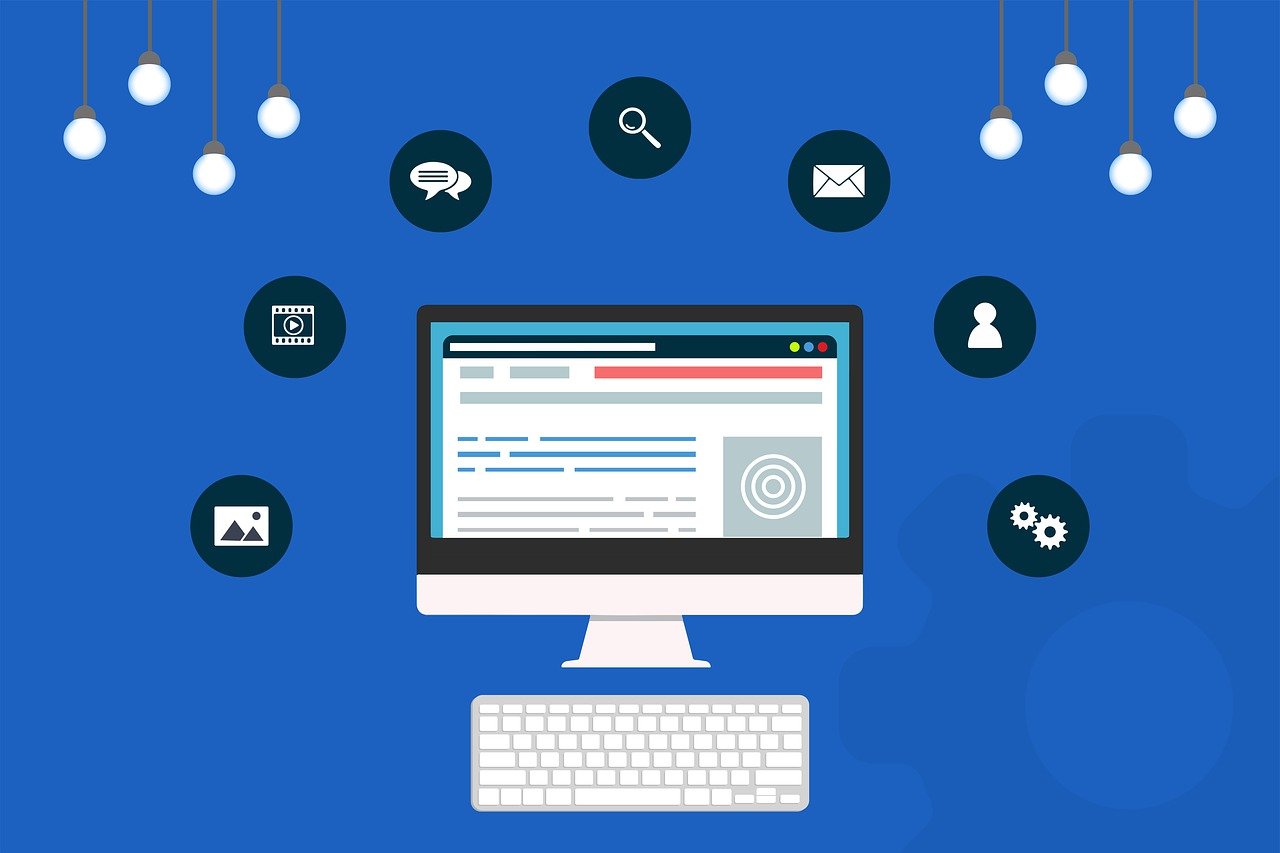 Lunch ProvidedBrightSpace Migration SupportAs we transition from Blackboard to BrightSpace there will undoubtedly be many questions. This group will introduce members to the many tools of BrightSpace and provide a supportive community for the migration of courses.
Lunch ProvidedBrightSpace Migration SupportAs we transition from Blackboard to BrightSpace there will undoubtedly be many questions. This group will introduce members to the many tools of BrightSpace and provide a supportive community for the migration of courses.This group will introduce members to the many tools of BrightSpace, provide a supportive community as we migrate our courses, and provide dedicated time monthly to move courses over to BrightSpace. Meetings will include a short presentation about BrightSpace, then time will be devoted to faculty working on their courses, asking questions, and receiving feedback from each other.
FLC Goals
Participants will...
- Learn how to copy exiting courses from Blackboard to BrightSpace.
- Learn about the many tools available in BrigthSpace to enhance teaching and learning.
- Have one course ready for teaching in BrightSpace.
Session Schedule
Date Time Location September 8 Noon - 3:00 pm Karls, 239 September 29 Noon - 3:00 pm Karls, 239 October 27 Noon - 3:00 pm Karls, 239 December 1 Noon - 3:00 pm Karls, 239 Facilitator(s)
Image credit: Pixabay
Register through MyLearningConnection.
-
Lunch & ChatGPT Guide ProvidedChatGPT Faculty Fellows ProgramThis FLC aims to equip faculty members with the knowledge and skills to leverage ChatGPT effectively in their teaching and research.
In today's rapidly evolving technological landscape, university faculty must keep up with the latest advancements in artificial intelligence (AI). One groundbreaking application of AI is ChatGPT, a language model that enables natural language conversation with users. By exploring the potential of ChatGPT, faculty can enhance their own productivity, engage students more effectively, and foster innovation within their academic disciplines.
FLC Goals
Participants will...
- gain a comprehensive understanding ChatGPT and its potential applications in academia.
- develop practical skills to integrate ChatGPT into teaching practices.
- harness the power of ChatGPT to streamline research activities.
- engage in discussions on ethical considerations and responsible use of ChatGPT.
- collaborate, share experiences, and develop a network for ongoing support and growth.
Session Schedule Fall 2023
Date Time Location to be determined Noon - 3:00 pm Meyer Library, 120 September 21 Noon - 3:00 pm Meyer Library, 120 October 19 Noon - 3:00 pm Meyer Library, 120 November 16 Noon - 3:00 pm Meyer Library, 120 -
 Book Provided!Critical & Inclusive Methodology Working GroupJoin a vibrant community of researchers who are currently using or seeking to use critical inclusive methods in their research!
Book Provided!Critical & Inclusive Methodology Working GroupJoin a vibrant community of researchers who are currently using or seeking to use critical inclusive methods in their research!-
This FLC provides a space for faculty and researchers to learn about and apply critical and inclusive methodologies. Participants receive a copy of "Understanding Critical Race Research Methods and Methodologies: Lessons from the Field" (DeCuir-Gunby, Chapman, & Schutz, 2019).
Critical and inclusive research methods are powerful tools that can be used to better understand the lived experiences of marginalized peoples. While these research methods are certainly employed by researchers, they represents a minority of published work in the social, behavioral, and health sciences. Part of the underrepresentation in published research may be due to a lack of exposure to these methods as well as a bias toward value-free, positivist approaches to research.
The experience begins with surveying critical and inclusive methods. The community will explore best practices and consider the viability of implementing critical and inclusive methods when conducting rigorous research. Throughout Fall 2024, the community will support each other in workshopping independent prospective research projects.
FLC Goals
Particpants will...
- Be exposed to a wide variety of critical and inclusive research methods that serve to challenge conventional, positive approaches.
- Learn how critical and inclusive research approaches are a viable way to conduct rigorous science.
- Have the opportunity to workshop prospective research projects that utilize critical and inclusive methods.
- Join a vibrant community of researchers who currently use or are seeking to use critical and inclusive methods in their research.
Session Schedule
This community meets from Noon to 2:30 p.m.
Date Workshop August 30 Critical and Inclusive Methods Workshop Session 1 September 27 Critical and Inclusive Methods Workshop Session 2 October 25 Critical and Inclusive Methods Workshop Session 3 TBD Critical and Inclusive Methods Workshop Session 4 TBD Critical and Inclusive Methods Workshop Session 5 Facilitator(s)
FLC Facilitator
Register through MyLearningConnection
-
-
 Active LearningDynamic Teaching: Leveraging Technology for Active EngagementThis community is dedicated to exploring and integrating digital tools and innovative strategies to foster active, engaged learning environments.
Active LearningDynamic Teaching: Leveraging Technology for Active EngagementThis community is dedicated to exploring and integrating digital tools and innovative strategies to foster active, engaged learning environments.Image Source: Pixabay
Register through MyLearningConnection
-
This FLC is an inclusive platform that welcomes new and experienced faculty members keen on embracing and enriching active learning techniques through the strategic use of technology. It offers a collaborative space where faculty, new to active learning, can discover and learn from the experiences of their peers while seasoned practitioners can share their insights and successes.
Participants will work towards defining and exemplifying what active learning, enhanced by technology, looks like at Missouri State University.
By combining expertise, sharing best practices, and co-creating resources, the FLC aims to build a robust framework for active learning that leverages technology to elevate student engagement, participation, and learning outcomes across disciplines.
FLC Goals
- Collaborative Enhancement of Technology Integration Skills: Participants enhance their skills in integrating educational technologies into their teaching and gain insights into how their colleagues across disciplines successfully incorporate these tools into active learning environments.
- Development of a Collaborative Active Learning Framework: Through collective exploration and sharing of experiences, the FLC will work towards the development of a comprehensive* framework that outlines effective active learning practices enhanced by technology. This framework will guide current and future faculty at Missouri State University, promoting a consistent and high-quality educational experience for students across various disciplines.
- Improved Student Engagement and Learning Outcomes: Integrating active learning strategies with technology significantly enhances student engagement, participation, and success. Faculty members will implement innovative teaching practices that foster a more interactive and inclusive classroom environment, leading to measurable improvements in student learning outcomes, such as increased retention, higher grades, and more meaningful participation in class activities.
Session Schedule
This community meets from 1 to 3 p.m.
Date Activity October 3, 2024 Kickoff and Exploration of Current Practices October 24, 2024 Enhancing Active Learning with Technology October 31, 2024 Designing Active Learning Activities with Tech Integration November 7, 2024 Developing the Active Learning Framework November 14, 2024 Refining and Expanding the Framework Facilitator(s)
Teaching & Learning Fellow
-
-
 Snacks & Book Provided!Inclusive InstructingWe will generate space through scholarship, service, mentorship, teaching, activism, and our very selves. Although this work will never be easy, it is imperative that we continue to persist, even in the face of difficulty, to make a profound difference in education and the lives of our students.
Snacks & Book Provided!Inclusive InstructingWe will generate space through scholarship, service, mentorship, teaching, activism, and our very selves. Although this work will never be easy, it is imperative that we continue to persist, even in the face of difficulty, to make a profound difference in education and the lives of our students.Image Credit: Pixabay
Snacks and drinks will be available at each session, and participants receive a copy of "What Inclusive Instructors Do" (Addie, et al., 2021).
FLC Goals
Participants will...
- Take responsibility for making their teaching and their curriculum inclusive.
- Continue to learn about both their students and teaching.
- Care about and for each and every student they teach.
- Change their teaching based on evidence about practices that support and challenge all students to thrive.
Fall 2023 Session Schedule
Date Time Location September 6 3:00 pm - 5:00 pm Meyer Library, 302 September 27 3:00 pm - 5:00 pm Meyer Library, 302 October 11 3:00 pm - 5:00 pm Meyer Library, 302 October 25 3:00 pm - 5:00 pm Meyer Library, 302 November 29 3:00 pm - 5:00 pm Meyer Library, 302 Facilitator(s)
Dr. Tara L. Boehne
Clinical Associate Professor
Doctoral Capstone Coordinator -
Session Schedule - Fall 2023
Date Time Location September 15 9:30 am - 4:30 pm To be determined September 18 9:30 am - 4:30 pm To be determined October 4 9:30 am - 4:30 pm To be determined October 23 9:30 am - 4:30 pm To be determined November 1 9:30 am - 4:30 pm To be determined November 10 9:30 am - 4:30 pm To be determined -
 Lunch & Book ProvidedAn Approach to Learning & Mental Health in the College ClassroomThis FLC will explore ways that mental health issues enter classrooms and impact teaching and student learning and design practices and assessments sensitive to student needs.
Lunch & Book ProvidedAn Approach to Learning & Mental Health in the College ClassroomThis FLC will explore ways that mental health issues enter classrooms and impact teaching and student learning and design practices and assessments sensitive to student needs.Image Credit: Pixabay
We will discuss ways we can have a positive impact on student well-being without being trained counselors and without adding to our own stress and workload. Participants will receive the book, "Improving Learning and Mental Health in the College Classroom" (Eaton, Hunsaker, & Moon), which will be used as a jumping off point for our discussions. We will also discuss our own experiences and explore other resources available to us. Ultimately, the group will focus on designing teaching practices and assignments that are sensitive to the needs of students with mental health challenges and stress levels of all students while still maintaining academic rigor.
FLC Goals
Participants will...
- Complete a psychological, pedagogical cost-benefit analysis for an assignment or pedagogical practice so they can balance sensitivity to negative effects of teaching practices on students with mental health challenges with the need to be academically rigorous.
- Understand how anxiety and depression impact on learning processes.
- Brainstorm and develop alternative classroom strategies and assignments that still meet their pedagogical goals but produce less stress for the student.
- Develop classes that are sensitive to the needs of students with mental health challenges and the stress of all students while maintaining academic rigor.
- Raise awareness that teaching has an impact on student mental health.
- Promote the impact of teaching practices on student mental health in their home departments.
Fall 2023 Session Schedule
Date Time Location September 18 11:30 am - 1:30 pm Meyer Library, 120 October 2 11:30 am - 1:30 pm Meyer Library, 120 October 16 11:30 am - 1:30 pm Meyer Library, 120 October 30 11:30 am - 1:30 pm Meyer Library, 120 November 6 11:30 am - 1:30 pm Meyer Library, 120 Facilitator(s)
-
 Book ProvidedReigniting the Flame: Unraveling Faculty BurnoutThis faculty learning community brings together professors across disciplines to collaboratively explore strategies for recognizing, coping with, and preventing faculty burnout. We will read "Unraveling Faculty Burnout," use shared readings, have peer discussions, and develop individualized self-care plans.
Book ProvidedReigniting the Flame: Unraveling Faculty BurnoutThis faculty learning community brings together professors across disciplines to collaboratively explore strategies for recognizing, coping with, and preventing faculty burnout. We will read "Unraveling Faculty Burnout," use shared readings, have peer discussions, and develop individualized self-care plans.
This FLC provides resources and a community for professors to conquer burnout and thrive.Image: Pixabay
Register through MyLearningConnection
-
Participants will identify causes of burnout, learn warning signs, and brainstorm personal and institutional changes needed to support faculty wellness. Members will: a) gain an understanding of how to "bust" burnout, and b) develop a supportive community to promote meaningful work, work-life balance, and renewed passion for academia.
FLC Goals
Participants will...
- Learn about the drivers of faculty burnout and its impacts on teaching, research, and service activities.
- Develop self-care plans to implement individual strategies for reducing stress and avoiding burnout.
- Collaborate to propose institutional policy changes aimed at creating a healthier faculty culture.
Session Schedule
Date Time Location February 1
Kickoff and Cultural Contributors
11:00 am to 1:00 pm Meyer Library, 302, Ozarks Room February 8
Integrity & Purpose
11:00 am to 1:00 pm Meyer Library, 302, Ozarks Room February 15
Compassion & Connection
11:00 am to 1:00 pm Meyer Library, 302, Ozarks Room February 22
Balance & Self-Care Planning
11:00 am to 1:00 pm Meyers Library, 302,, Ozarks Room February 29
Takeaways & Next Steps
11:00 am to 1:00 pm Meyers Library, 302, Ozarks Room Facilitator(s)
-
-
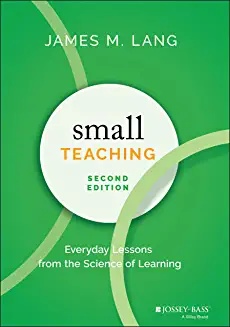 Book IncludedSmall TeachingThe Small Teaching FLC is based on Jim Lang's book, "Small Teaching", which offers easy to implement research-based strategies for promoting student learning.
Book IncludedSmall TeachingThe Small Teaching FLC is based on Jim Lang's book, "Small Teaching", which offers easy to implement research-based strategies for promoting student learning.
This FLC will provide faculty the opportunity to engage in an in-depth study of the book along with dedicated time and support for implementing small changes in instruction.-
The FLC will be organized around the three major topics addressed in the book: Knowledge, understanding, and inspiration. Following the introductory session, there will be two sessions per topic in which participants study the relevant chapters and work together to identify teaching strategies that can be applied across disciplines. There will also be a concluding session in which participants can reflect ton the FLC and set instructional goals for their future teaching.
FLC Goals
Participants will...
- Discover ways to improve student engagement and learning without having to make major changes to their current course designs.
- Identify at least one small change to make in their own instruction from the major topics addressed in the FLC.
- Identify a set of instructional strategies that can be easily adopted and implemented across disciplines.
Date Time Location April 11
Conclusion & Reflection
1:00 pm to 2:30 pm Meyer Library, 205
-
-
Session Schedule - Fall 2023
Date Time Location August 30 1:00 pm - 3:00 pm Meyer 107 September 6 1:00 pm - 3:00 pm Meyer 107 September 13 1:00 pm - 3:00 pm Meyer 107 September 20 1:00 pm - 3:00 pm Meyer 107 September 27 1:00 pm - 3:00 pm Meyer 107 October 4 1:00 pm - 3:00 pm Meyer 107 October 11 1:00 pm - 3:00 pm Meyer 107 October 18 1:00 pm - 3:00 pm Meyer 107 October 25 1:00 pm - 3:00 pm Meyer 107 November 1 1:00 pm - 3:00 pm Meyer 107 November 8 1:00 pm - 3:00 pm Meyer 107 November 15 1:00 pm - 3:00 pm Meyer 107




